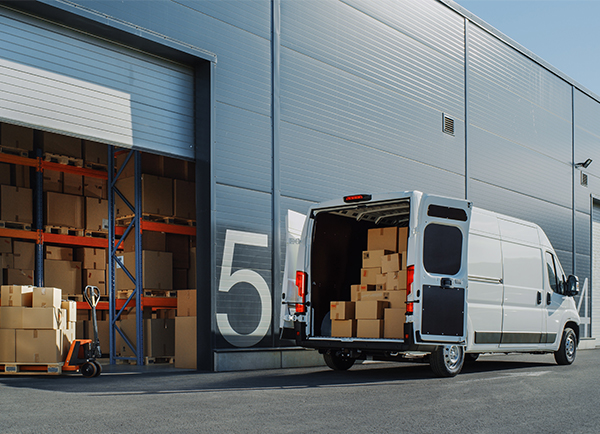Online Parts Catalog
Thursday, January 19, 2023
Most See Last-Mile Delivery Growth Accelerating Despite Inflation, Return to Work

After two years of unprecedented pandemic-driven e-commerce sales, some wonder what impact – if at all – relaxed COVID restrictions and high inflation may have on the last-mile market.
Last-mile delivery skyrocketed in recent years – from $31.25 billion in 2018 to a projected $50.95 billion in 2022. Due to a shift in buying habits, almost twice as many people (58%) made their purchases online rather than from a brick-and-mortar retailer during the pandemic than before it began (32%). Cargo van manufacturers have also been working to meet the demands of this growing segment.
Much of that growth was driven by increased deliveries of “big and bulky” items, like fitness equipment and furniture for home offices. But now the question is whether demand will taper off as people reduce discretionary spending and head back to the office and hit the gym.
RXO, a digital truck brokerage, says high inflation has flattened the overall market for furniture and appliances. Still, many believe this to be a temporary phenomenon.
“We’re seeing the typical cyclicality one would expect, with appliances more resilient than bedding, furniture, and fitness equipment,” Fernando Rabel, interim president of last mile for RXO, was quoted as saying in Supply Chain Quarterly. “By 2025, heavy and bulky penetration is expected to increase to nearly 30% of all e-commerce. We expect in the long term that this tailwind will drive continued demand for last-mile services.”
For industry-leading retailer Walmart, delivery is up nearly 40% year-over-year. According to their senior vice president of end-to-end delivery, Jennifer McKeehan, the company’s top priority is strengthening their final mile program and expanding their reach.
While what the future holds is anyone’s guess, some logistics analysts expect the market will continue to grow by more than 13% annually.
Shifting service needs from Class 8 trucks to more light-duty vans and medium-duty trucks also means more opportunities for filtration sales. Last-mile delivery is tough on vehicles due to the often-harsh stop-and-go driving style that is required. It increases wear and tear on vital engine components, shortening change intervals for oil, fuel and cabin air filters.
Because most preventative maintenance intervals don’t take these extreme operating conditions into account, last-mile delivery vehicles will likely require more frequent filter replacement. For example, unlike class 7 and 8 trucks that have longer filter service intervals, last-mile vehicles often require multiple oil changes per year.
To learn more about Luber-finer’s filters for last-mile delivery vehicles, we invite you to watch this video and visit our last-mile page for ordering details.
